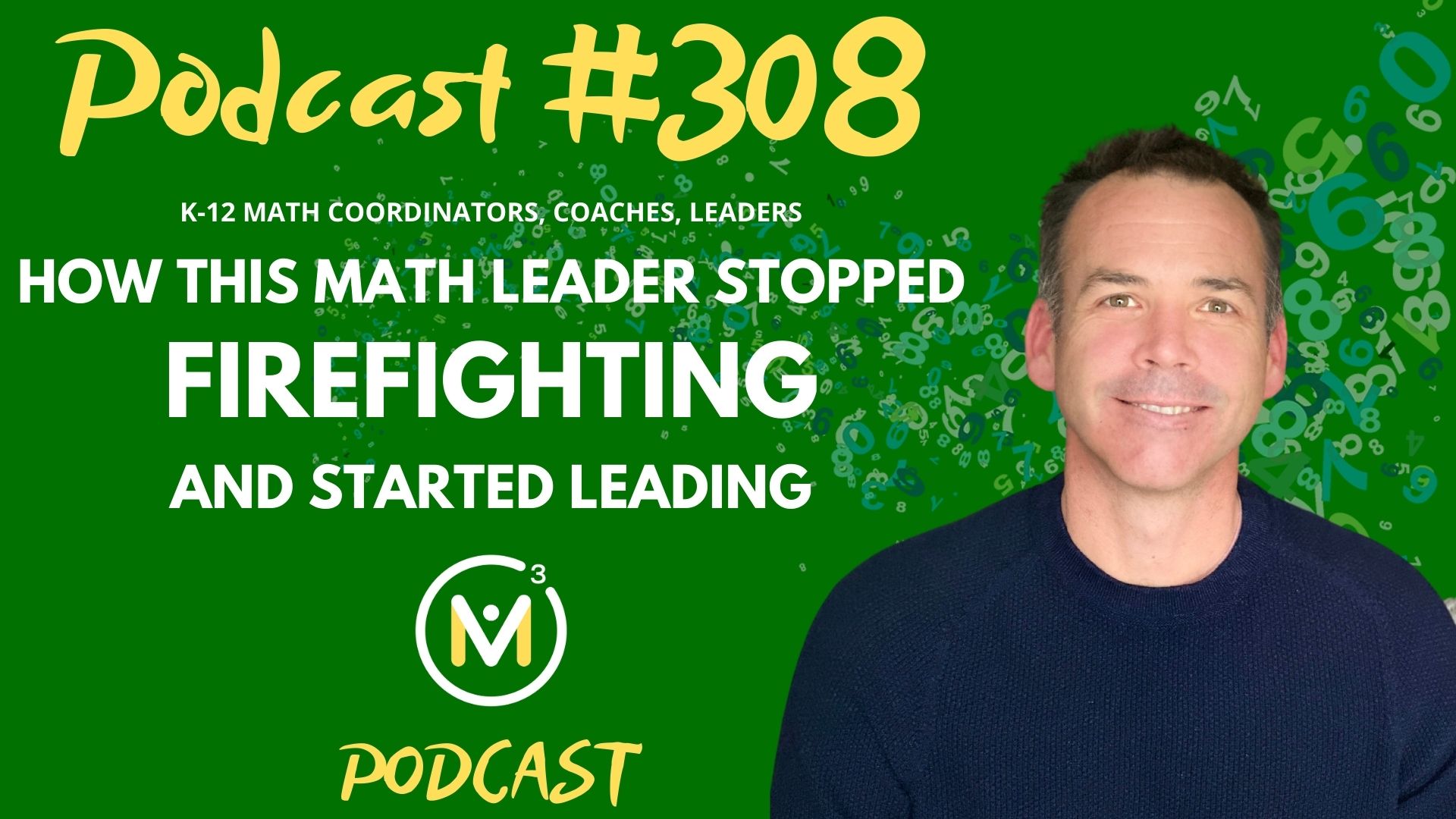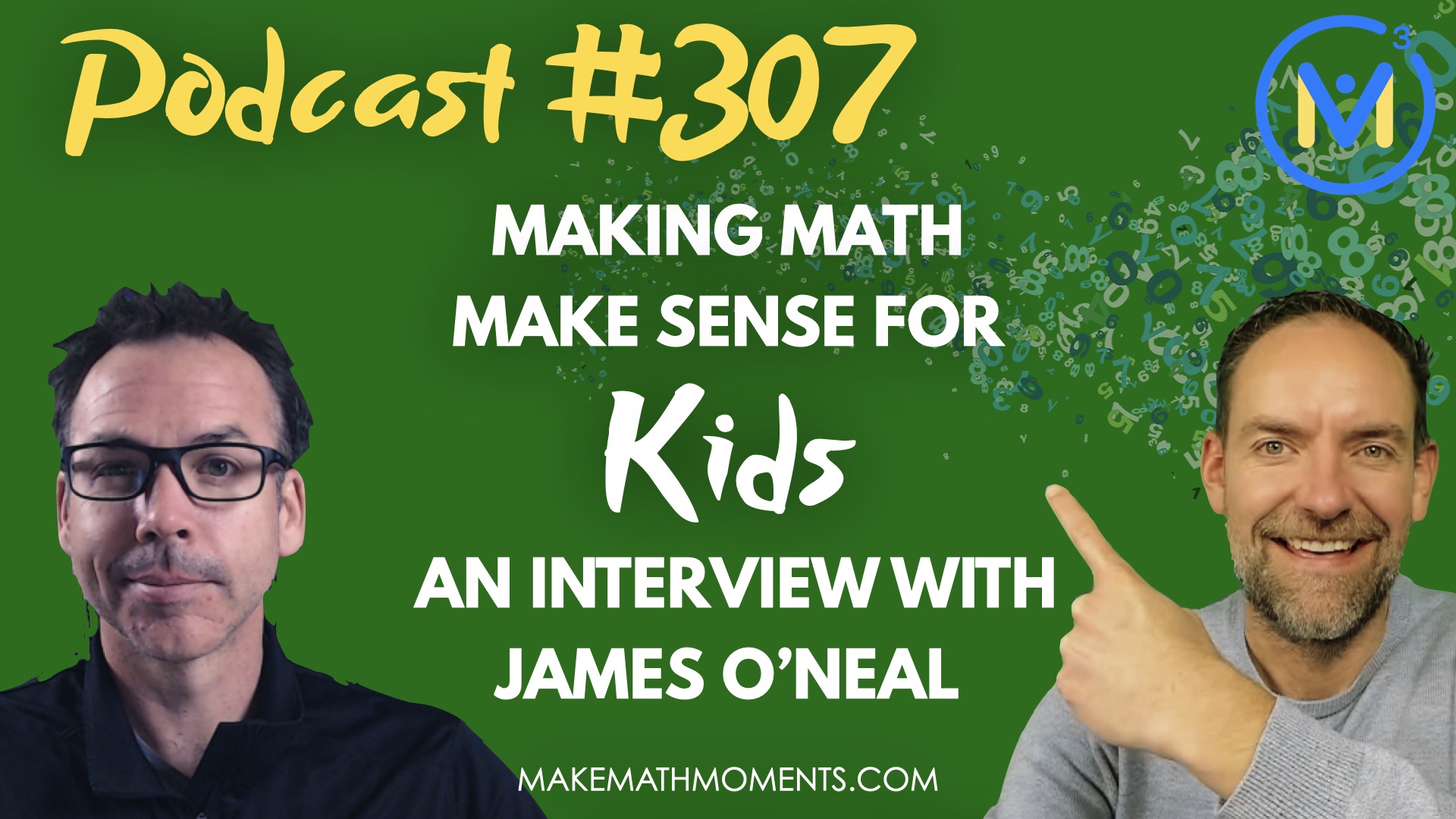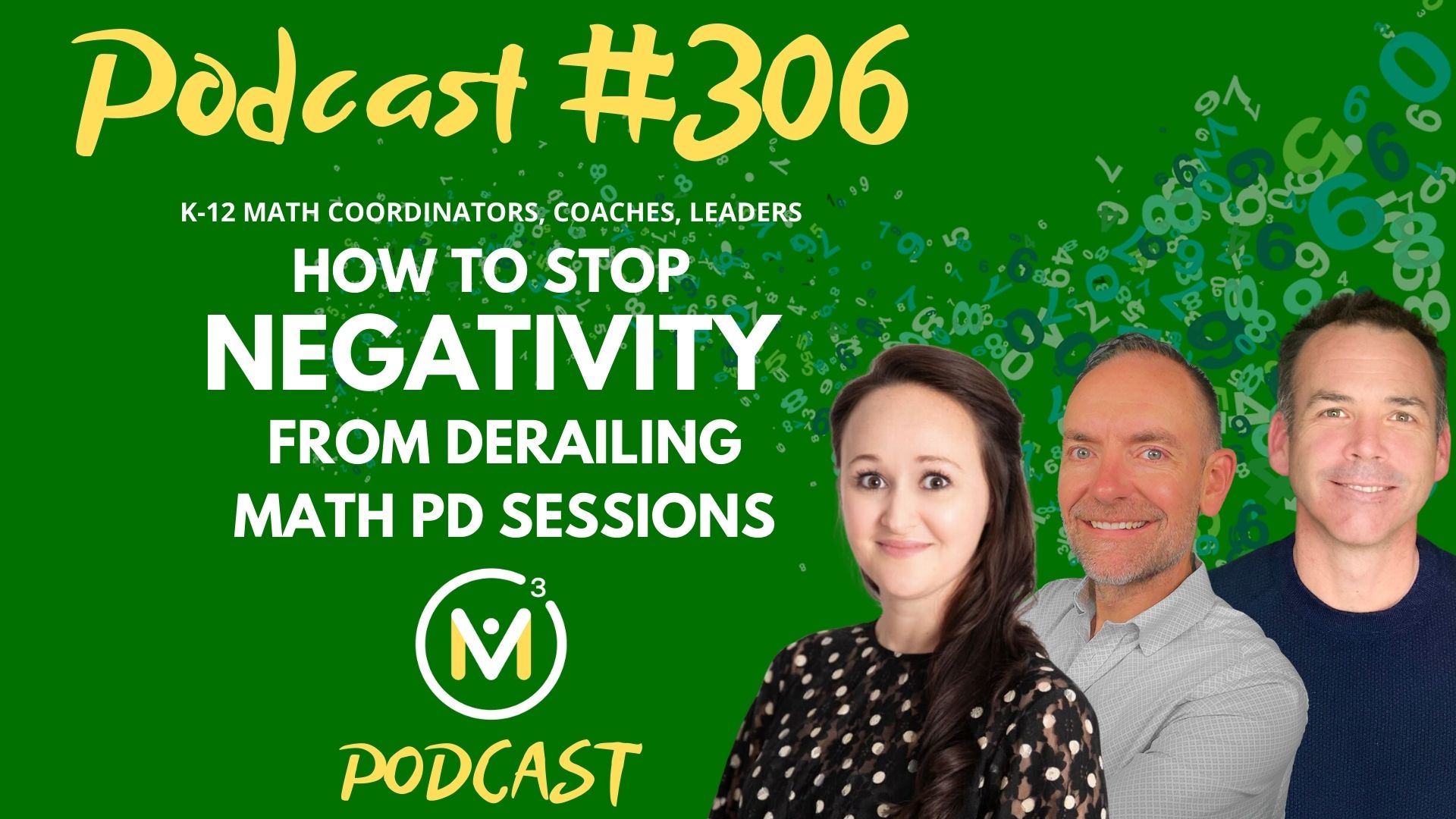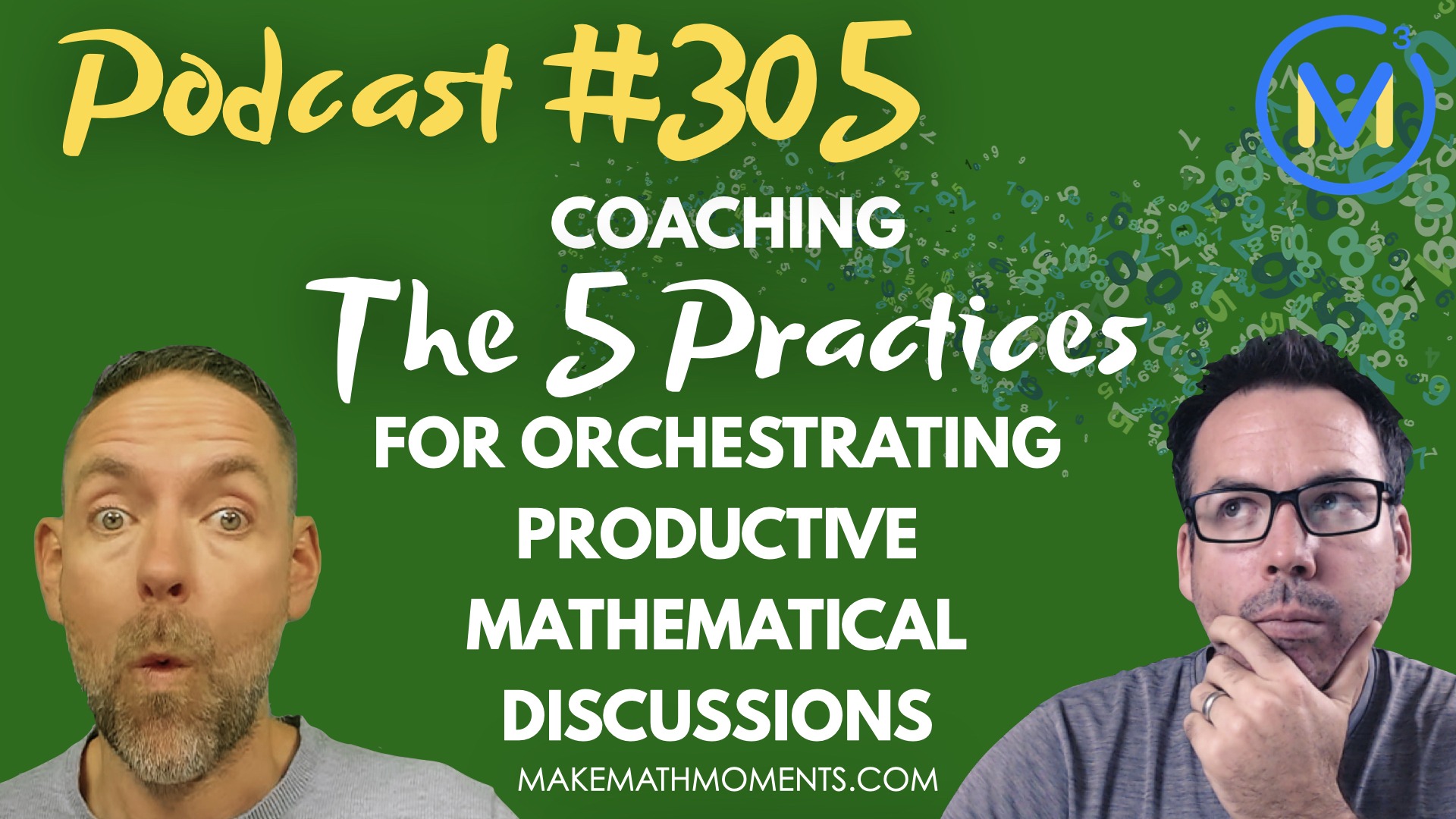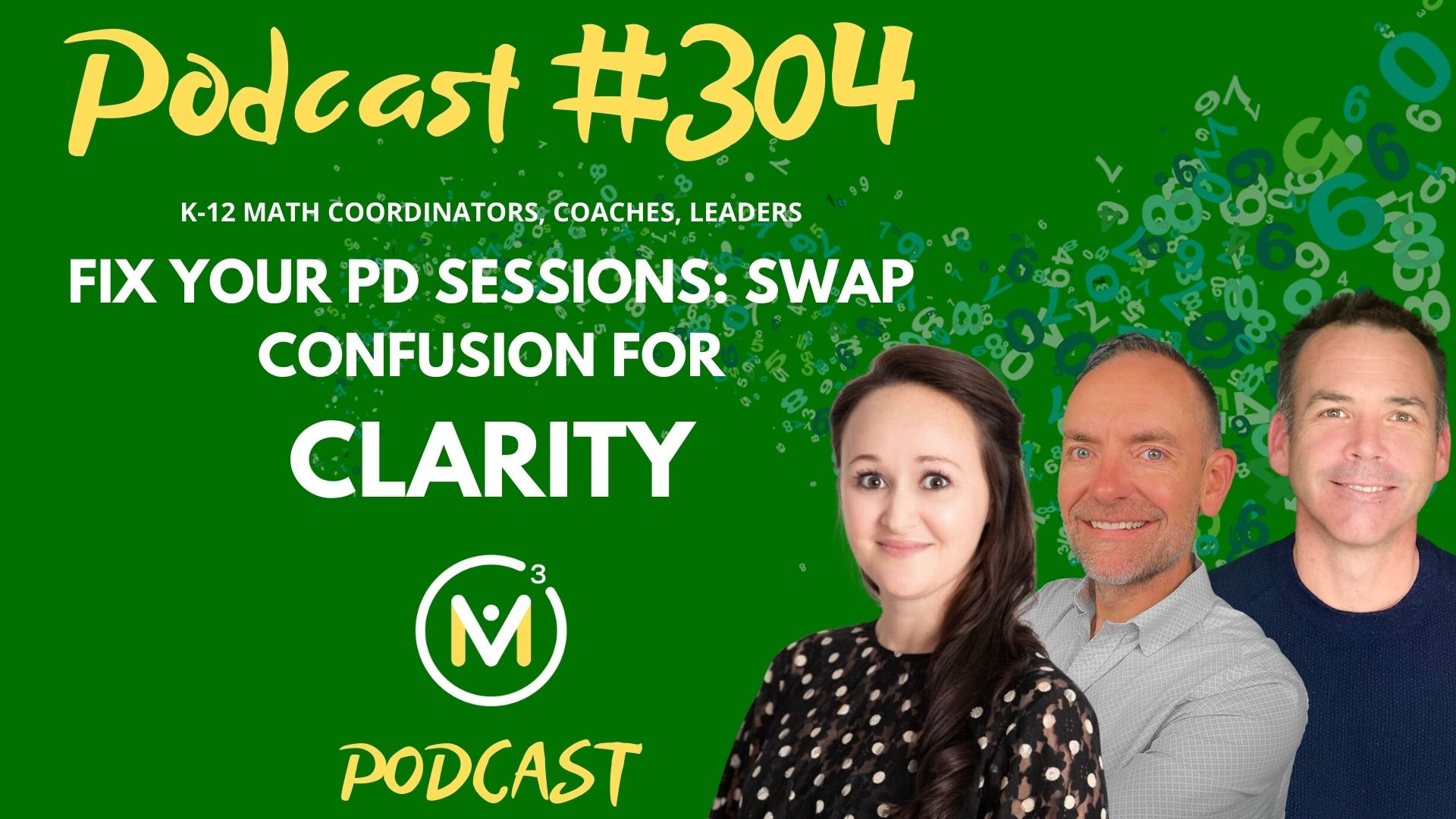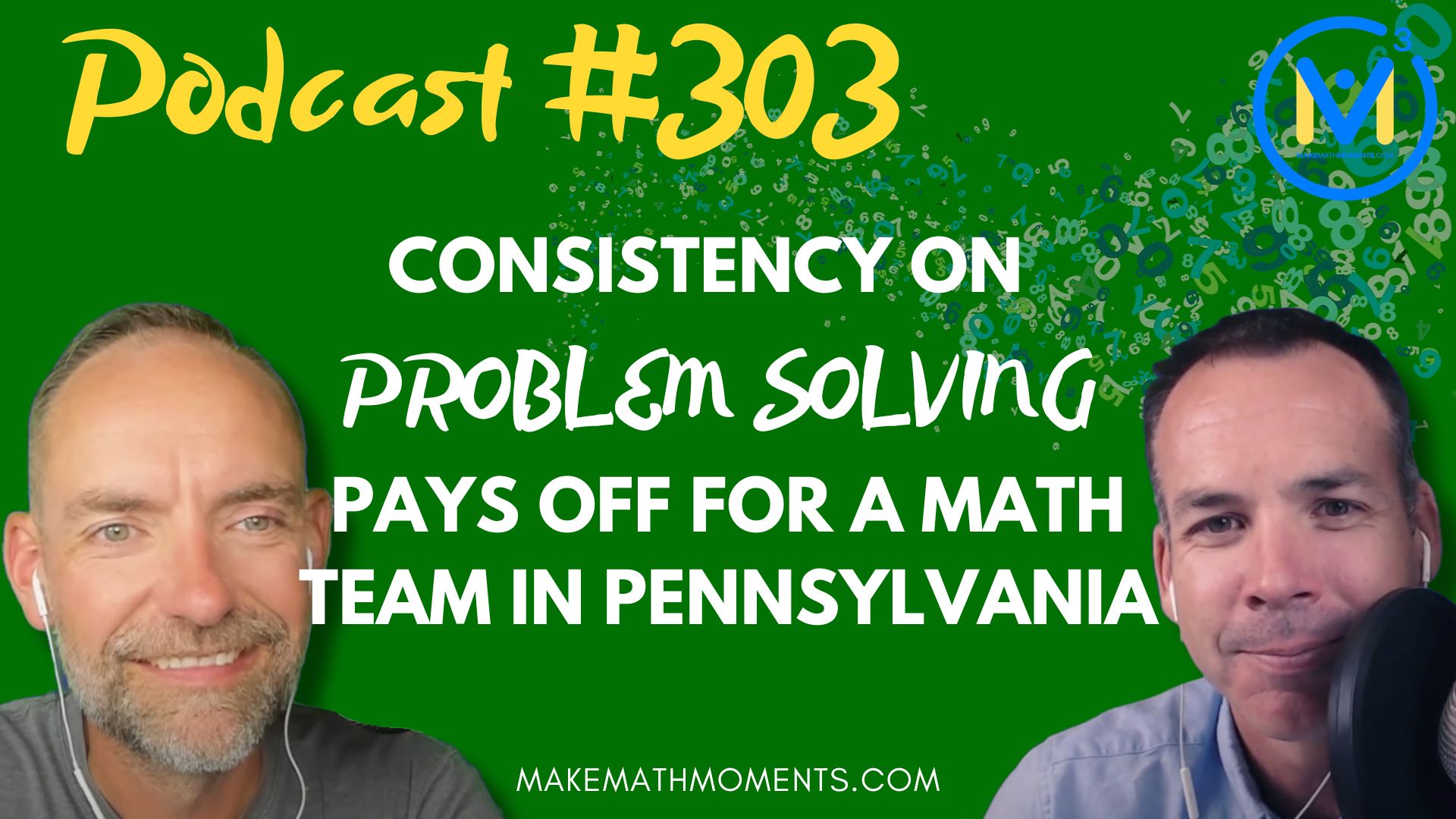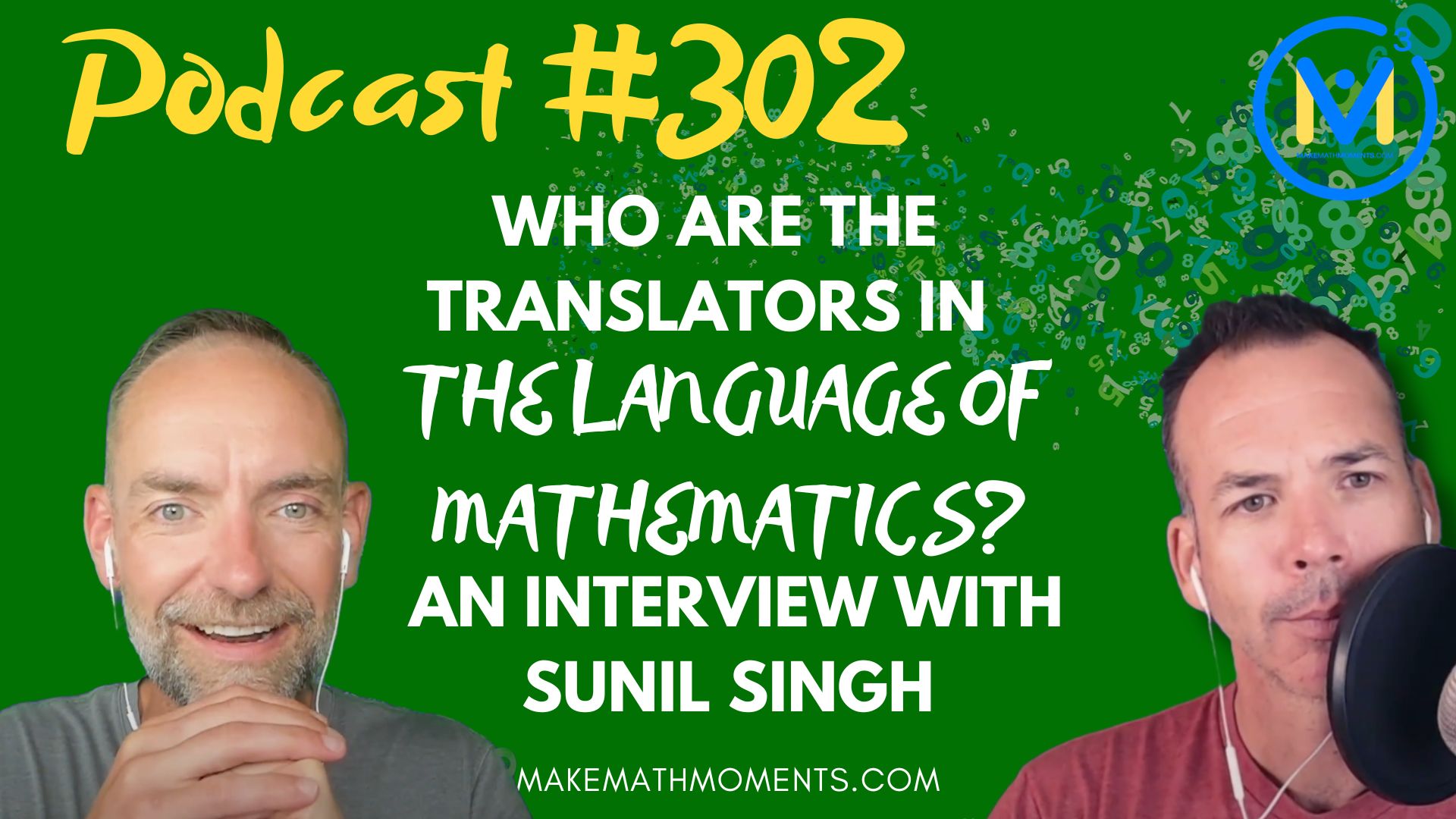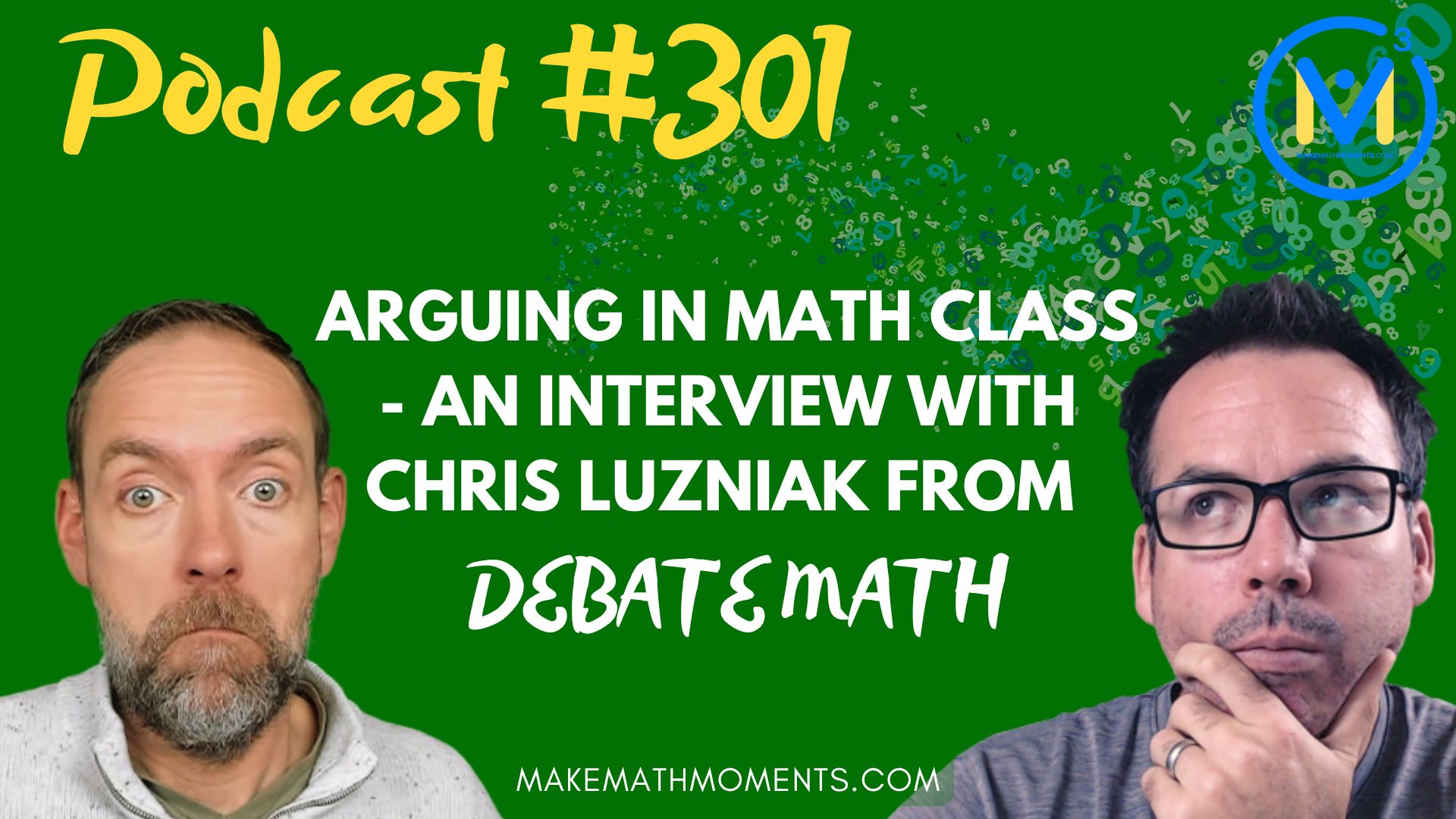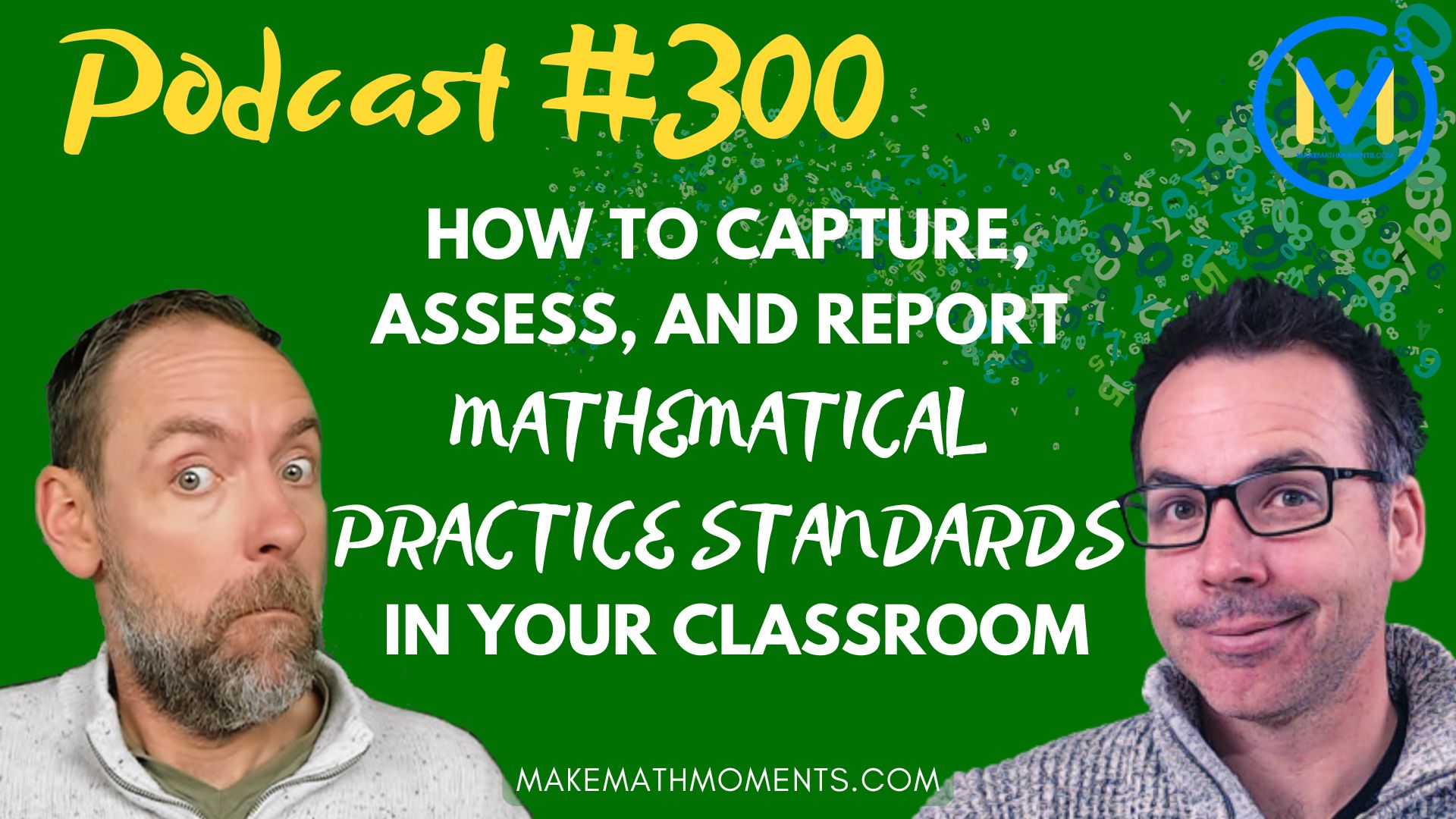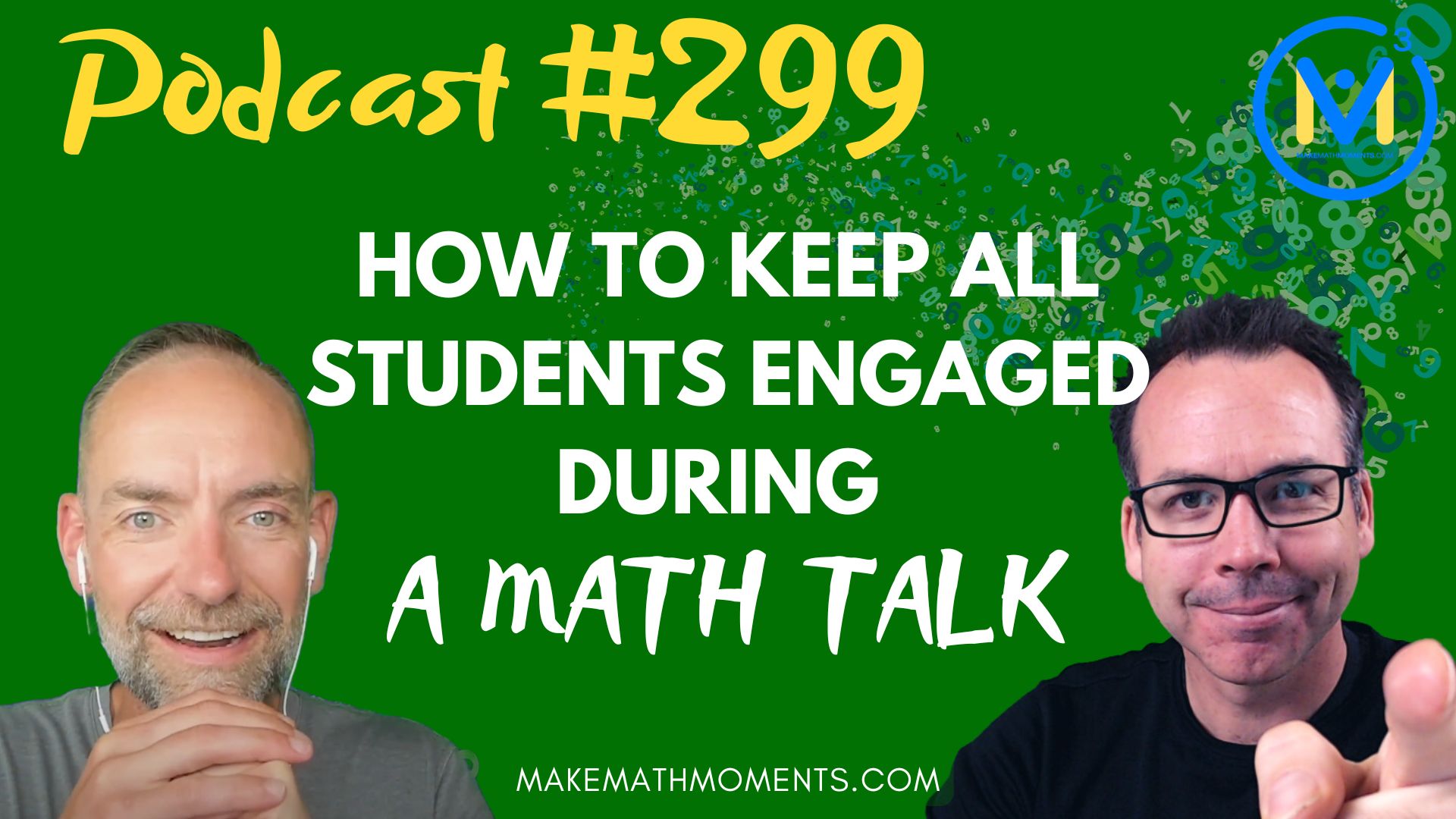BE A GUEST ON OUR SHOW!
What Is The Making Math Moments That Matter Podcast?
In a nutshell, we want The Making Math Moments That Matter Podcast to be a resource that all educators who teach mathematics can turn to in order to learn from others in the mathematics education space. Each episode typically involves Jon and I conversing about ideas in math teaching and learning, Math Mentoring Moments with teachers who join us on the show for a coaching call, and interviews with influencers in the mathematics education space.
We would love to explore your story in mathematics education, the challenges you may have experienced along the way, and the current projects you are currently working on to raise awareness of all the great things happening with our Math Moment Maker Community of listeners.
If you want to get more of a feel for the style of the show, you can listen to previous episodes right from this webpage or, take them with you by listening in on all common podcast platforms such as iTunes, Google Play, and Spotify.
Interview Structure
Each interview is intended to be a free-flowing conversation.
However, early in the call we like to help listeners get a better sense of your story. This will include these three questions early on in the conversation:
- Tell us a little about yourself. What’s your math teaching story/journey?
- What inspired you to become a math educator / researcher / involved in mathematics education?
- When you think back to your own education experience, what memorable math moment has stuck with you?
Framing how you might respond to each of those three (3) questions ahead of time can be helpful for making things flow into the next section of the chat.
We then typically send you some high-level questions related to your specific work ahead of time. The conversation will dictate which pre-planned questions we discuss in the interview as well as any new questions that might arise.
Share Your Current Work
Consider your work and what might provide value for the Math Moment Maker Community:
- Are you currently promoting a book?
- Releasing a new podcast?
- Publishing a new research paper?
- Launching a new project or tool?
- Something else?
Be ready to share details with our audience (i.e.: website url, social media handle(s), etc.) to ensure they know where they can learn more about you and your work.
If interested, we would be happy to run a contest for a copy of your new book, resource, tool, etc.
Just let us know!
Interview Logistical Details
To ensure you have what you need to connect with us for an interview, we’ve created a list of the most important details:
- The interview will be audio only conducted via a web based tool called Zencastr via a link we would send in a follow-up email.
- The total time commitment would be approximately one hour.
- Secure yourself a microphone that connects to your computer. You don’t need to buy one at all if you have earbuds with a microphone attached. (For example I use the pair of earbuds that came with my iPhone). Note that sometimes bluetooth headsets can cause problems with delay, sound quality, etc. We’d recommend getting “wired in” if you can.
- Try to avoid using a tablet or Chromebook for this call. Our recording software isn’t a big fan of them and does much better with a desktop or laptop as the audio is recorded locally in your own computer web browser.
- Ensure that at the time of the call you are connected to high speed internet and using an updated web browser like Google Chrome or Firefox. Sadly, Internet Explorer and Safari don’t play well with our recording software.
Don’t hesitate to contact us if any of this is unclear or if you have additional questions about compatible technology.
We’d love to help!
NEXT STEPS…
Are you interested in joining us for an interview?
Contact us and we’ll send on our booking calendar to reserve you a date and time that works best for you!
Listen To Our Recent Episodes:
Episode #308: How This Math Leader Stopped Firefighting and Started Leading | Mathematics Coaching and Training Series
Imagine facilitating a mathematics coaching and training session where participants know exactly what they will walk away with. Listen in and learn how.
In this episode, Kyle Pearce, Yvette Lehman and Peg Smith, co-author of the new book Coaching The 5 Practices from Corwin dive into practical strategies for making math classrooms more effective and engaging. Whether you’re a teacher or a coach, this discussion on the 5 practices for orchestrating productive mathematical discussions and new coaching models will help you address real challenges and create a more student-centered learning environment.
Learn how setting clear learning goals can transform your teaching approach and student outcomes.
Discover a new coaching model that helps teachers tackle classroom challenges through collaboration and reflection.
Gain insights into a student-centered approach that encourages productive struggle and deepens mathematical understanding.
Don’t miss this opportunity to elevate your teaching—listen to the episode now and pre-order Peg Smith’s new book to start implementing these strategies in your classroom!
Episode #307: Making Math Make Sense for Kids – An Interview with James O’Neal from Mastery For All
Are you curious about how to overcome the most common challenges in implementing student-centered teaching practices in math and to unpack the 5 Practices For Orchestrating Productive Mathematical Discussions?
In this episode, Kyle Pearce, Yvette Lehman and Peg Smith, co-author of the new book Coaching The 5 Practices from Corwin dive into practical strategies for making math classrooms more effective and engaging. Whether you’re a teacher or a coach, this discussion on the 5 practices for orchestrating productive mathematical discussions and new coaching models will help you address real challenges and create a more student-centered learning environment.
Learn how setting clear learning goals can transform your teaching approach and student outcomes.
Discover a new coaching model that helps teachers tackle classroom challenges through collaboration and reflection.
Gain insights into a student-centered approach that encourages productive struggle and deepens mathematical understanding.
Don’t miss this opportunity to elevate your teaching—listen to the episode now and pre-order Peg Smith’s new book to start implementing these strategies in your classroom!
Episode #306: How to Stop Negativity from Derailing Math PD Sessions | Mathematics Coaching and Training Series
Imagine facilitating a mathematics coaching and training session where participants know exactly what they will walk away with. Listen in and learn how.
In this episode, Kyle Pearce, Yvette Lehman and Peg Smith, co-author of the new book Coaching The 5 Practices from Corwin dive into practical strategies for making math classrooms more effective and engaging. Whether you’re a teacher or a coach, this discussion on the 5 practices for orchestrating productive mathematical discussions and new coaching models will help you address real challenges and create a more student-centered learning environment.
Learn how setting clear learning goals can transform your teaching approach and student outcomes.
Discover a new coaching model that helps teachers tackle classroom challenges through collaboration and reflection.
Gain insights into a student-centered approach that encourages productive struggle and deepens mathematical understanding.
Don’t miss this opportunity to elevate your teaching—listen to the episode now and pre-order Peg Smith’s new book to start implementing these strategies in your classroom!
Episode #305: Coaching The 5 Practices For Orchestrating Productive Mathematical Discussions – An Interview with Peg Smith
Are you curious about how to overcome the most common challenges in implementing student-centered teaching practices in math and to unpack the 5 Practices For Orchestrating Productive Mathematical Discussions?
In this episode, Kyle Pearce, Yvette Lehman and Peg Smith, co-author of the new book Coaching The 5 Practices from Corwin dive into practical strategies for making math classrooms more effective and engaging. Whether you’re a teacher or a coach, this discussion on the 5 practices for orchestrating productive mathematical discussions and new coaching models will help you address real challenges and create a more student-centered learning environment.
Learn how setting clear learning goals can transform your teaching approach and student outcomes.
Discover a new coaching model that helps teachers tackle classroom challenges through collaboration and reflection.
Gain insights into a student-centered approach that encourages productive struggle and deepens mathematical understanding.
Don’t miss this opportunity to elevate your teaching—listen to the episode now and pre-order Peg Smith’s new book to start implementing these strategies in your classroom!
Episode #304: Fix Your PD Sessions: Swap Confusion for Clarity | Mathematics Coaching and Training Series
Imagine facilitating a mathematics coaching and training session where participants know exactly what they will walk away with. Listen in and learn how.
In this episode, Kyle Pearce, Yvette Lehman and Peg Smith, co-author of the new book Coaching The 5 Practices from Corwin dive into practical strategies for making math classrooms more effective and engaging. Whether you’re a teacher or a coach, this discussion on the 5 practices for orchestrating productive mathematical discussions and new coaching models will help you address real challenges and create a more student-centered learning environment.
Learn how setting clear learning goals can transform your teaching approach and student outcomes.
Discover a new coaching model that helps teachers tackle classroom challenges through collaboration and reflection.
Gain insights into a student-centered approach that encourages productive struggle and deepens mathematical understanding.
Don’t miss this opportunity to elevate your teaching—listen to the episode now and pre-order Peg Smith’s new book to start implementing these strategies in your classroom!
Episode #303: Consistency On Problem Solving Pays Off For A Math Team in Pennsylvania – A Math Mentoring Moment
Ever wondered how consistency and patience in teaching methods can drastically improve student & teacher performance in math?
This episode dives deep into the challenges and triumphs of designing and sticking with consistent math action plans that support teachers with effective math teaching strategies. Whether you’re a teacher aiming to boost your students’ math scores or a math coordinator, coach, or administrator seeking sustainable change, this conversation provides actionable insights that align with your goals.
Discover how a focus on problem-first teaching led to a remarkable increase in student test scores.
Learn strategies for developing teachers’ conceptual understanding across grade levels, crucial for long-term success.
Gain insights into balancing individual and group learning in the classroom using innovative approaches like non-permanent surfaces.
Don’t miss out on these game-changing strategies—listen to the episode now and start transforming your math teaching approach today!
Episode #302: Who Are The Translators In The Language of Mathematics? An Interview with Sunil Singh
Are you ready to transform your math classroom into a space where students see the beauty and relevance of mathematics in their everyday lives?
In this episode, we speak with long time friend of the show Sunil Singh who is here to give you a snapshot of his upcoming Make Math Moments Summit session around the Language of Mathematics. Sunil is an author, educator, and advocate for the teaching and learning of the beauty of mathematics! Stick with us and you’ll hear how viewing mathematics as a language to be fluently learned can revolutionize your teaching. You’ll uncover why contemporary mathematics has been excluded from K-12 math classrooms; how teachers are acting as translators in the language of mathematics and how we can help students become more fluent; and how we can create a community of scavengers in a world of mathematics.
Episode #301: Arguing in Math Class – An Interview with Chris Luzniak From Debate Math
What if our students were not focused solely on finding the correct answer? What if they felt motivated to discuss and explain math topics? If we want students to deeply understand topics, they need to communicate their thinking, construct arguments, and listen and respond to others. They need to DebateMath!
Listen in as Chris Luzniak, author of Debate Math shares his insights on how to get your students arguing in math class. Chris is here to give you a sneak peek of his upcoming 2024 Make Math Moments Virtual Summit session: Arguing In Math Class.
You’ll learn:
Discover how to create structured debates that make math concepts more engaging and relatable for students.
Learn strategies to overcome the fear of trying new teaching techniques and embrace flexibility in the classroom.
Gain insights into the latest brain science behind effective argumentation and how it can enhance student understanding.
Don’t miss out on transforming your teaching approach—listen to this episode now and bring a new level of excitement to your math lessons!
Episode #300: How to Capture, Assess, and Report Mathematical Practice Standards In Your Classroom – A Math Mentoring Moment
Are your current assessment methods truly capturing your students’ growth and understanding in mathematics?
In a world where traditional testing often falls short of showcasing real student achievement, this episode explores innovative strategies that could redefine how we measure success in the math classroom. Whether you’re struggling to balance content standards with the need to teach mathematical practice standards or looking to implement deeper thinking methods, like The Thinking Classroom, Number Talks, Problem Based Lessons, or 3-Act Math Tasks, this discussion offers practical solutions.
Episode #299: How To Keep All Students Engaged During A Math Talk – A Math Mentoring Moment
How can you keep ALL students engaged and excited about math when the topic doesn’t seem to lend itself to engaging and insightful ideas?
If you’re struggling to maintain your students’ interest in math or finding it difficult to balance foundational skills with engaging activities, this episode offers practical solutions that could transform your classroom experience.
We speak with Kindergarten teacher Nichole Collins who’s on a journey to engage all the young minds in her classroom especially when the topic doesn’t seem to be that exciting on its own.
STAY IN THE LOOP:
JOIN THE COMMUNITY
KYLE PEARCE & JON ORR


